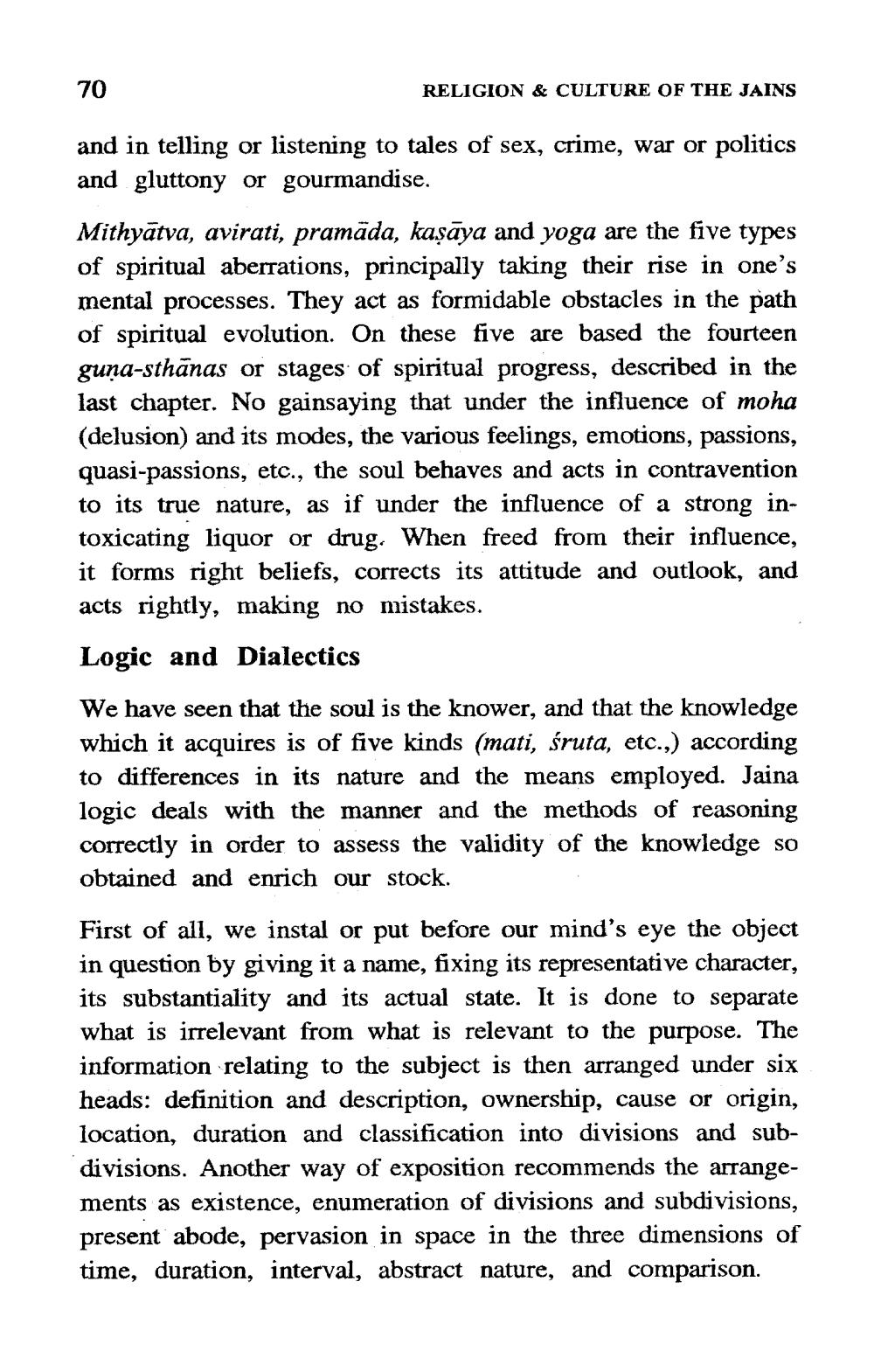________________
70
RELIGION & CULTURE OF THE JAINS
and in telling or listening to tales of sex, crime, war or politics and gluttony or gourmandise. Mithyātva, avirati, pramāda, kaşāya and yoga are the five types of spiritual aberrations, principally taking their rise in one's mental processes. They act as formidable obstacles in the path of spiritual evolution. On these five are based the fourteen guna-sthānas or stages of spiritual progress, described in the last chapter. No gainsaying that under the influence of moha (delusion) and its modes, the various feelings, emotions, passions, quasi-passions, etc., the soul behaves and acts in contravention to its true nature, as if under the influence of a strong intoxicating liquor or drug. When freed from their influence, it forms right beliefs, corrects its attitude and outlook, and acts rightly, making no mistakes. Logic and Dialectics
We have seen that the soul is the knower, and that the knowledge which it acquires is of five kinds (mati, śruta, etc.,) according to differences in its nature and the means employed. Jaina logic deals with the manner and the methods of reasoning correctly in order to assess the validity of the knowledge so obtained and enrich our stock.
First of all, we instal or put before our mind's eye the object in question by giving it a name, fixing its representative character, its substantiality and its actual state. It is done to separate what is irrelevant from what is relevant to the purpose. The information relating to the subject is then arranged under six heads: definition and description, ownership, cause or origin, location, duration and classification into divisions and subdivisions. Another way of exposition recommends the arrangements as existence, enumeration of divisions and subdivisions, present abode, pervasion in space in the three dimensions of time, duration, interval, abstract nature, and comparison.




